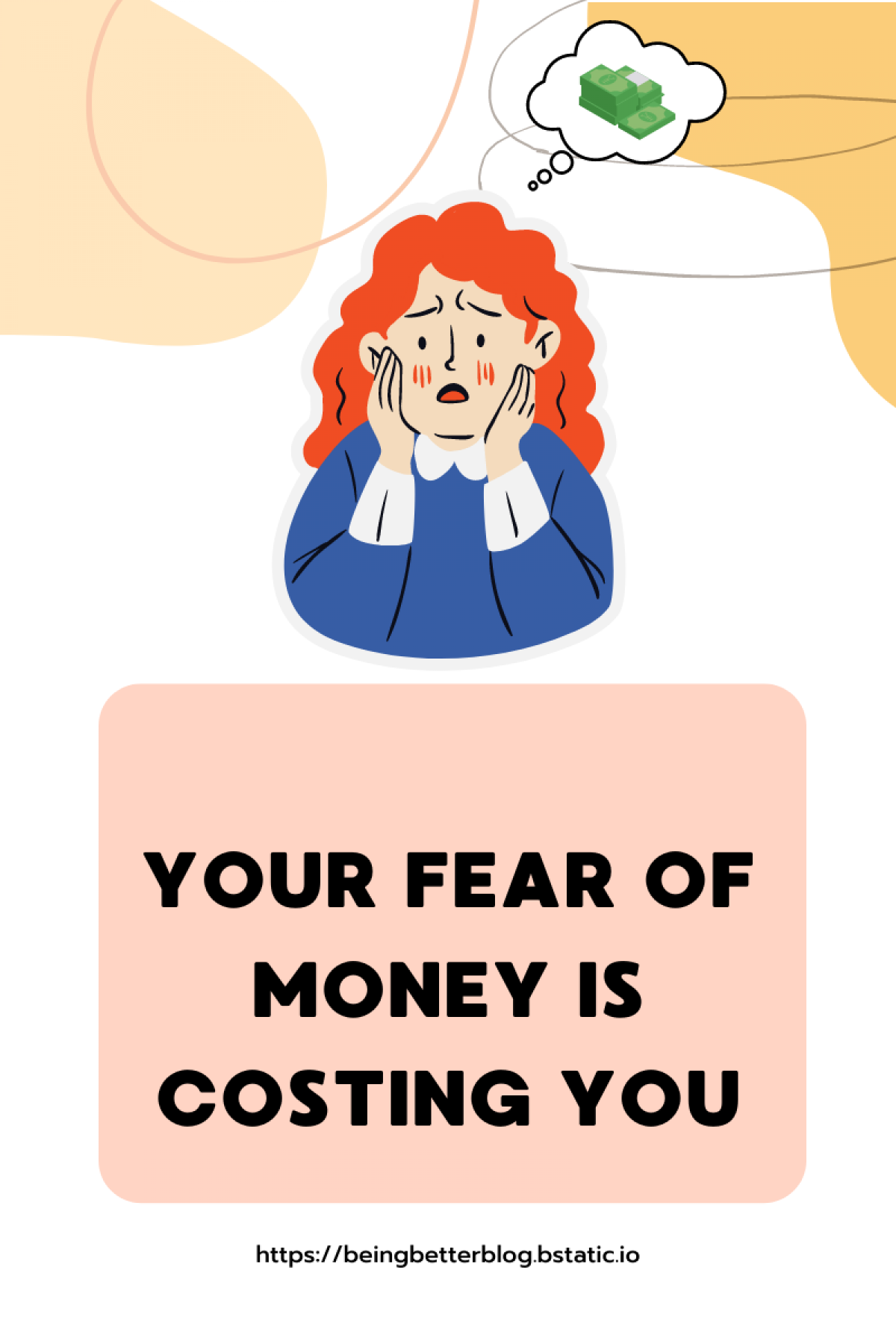I want to tell you about my friend S. S has been an aspiring writer since childhood but has yet to pursue writing seriously as a career. A few years ago, he met a mutual acquaintance of a friend, P, at a dinner party and struck up a fun and casual conversation. Months later, P contacted S, told him he was impressed by S's storytelling ability and asked S for help. P was working on opening his own business and was interested in any service S could provide regarding copywriting.
S was flattered and sent me a screenshot of this offer with excitement. I, too, was excited by this opportunity and asked him if he had any ideas regarding the content he would produce and what compensation he would be targeting. But when I asked him those questions, something odd happened; S made a funny face and told me, "No, I can't ask him to pay me. I have no experience or portfolio or anything like that." I immediately sensed a shift in his mood; the excitement was gone.
I tried to encourage him by explaining that it was appropriate to ask for compensation; he was, after all, going to provide them with content designed to drive traffic to their business. I continued to protest and told him that if he wasn't qualified to complete the work, then P wouldn't have asked him in the first place. But it was to no avail; S couldn't overcome his worries regarding his competence and ended up declining P's offer.
This situation got me thinking about the patterns in S's life. S had studied hard in high school and college and was accepted into a STEM master's program on an assistantship. He completed his thesis and graduated on time, but his graduation coincided with the post-2008 recession recovery period, so he struggled to find a job.
However, he did find a suitable position and began working in his field of study in 2013. However, in 2023, he is still working in the same role for which he was initially hired. Over the past decade, he had received no significant raises, promotions, or improved responsibilities. While he was once happy to have found a job in his field, his complaints increased over the years. He seemed bored and had maxed out his potential in his current role.
Hearing the same complaints from S year after year, I'd ask him, "Why don't you find something else?" To which he would usually respond with some combination of:
- "Most people in my field never even get a job as good as mine."
- "My type of work is so niche; I'd never be able to find anything like it."
- "If I leave here I'd just have to start at the bottom somewhere else."
He had a million reasons why he couldn't, shouldn't, or wouldn't move on from a job he was no longer enjoying.
Watching him wrestle with a problem that seemed to have an easy solution was highly frustrating and sometimes flat-out annoying. I couldn't understand why he seemed unable to put himself out there; until I talked to his family, which illuminated the whole issue.
"That's exactly how we all are; no one in this family has ever been able to ask for good pay." remarked his mother, L, when I told her of the content writing offer S passed up. L also shared with me her frustrations with her career. L told me that she often felt like the burden of work tasks fell solely on her shoulders. So much so that she decided against taking PTO and often worked unpaid overtime to pick up slack at she felt others were neglecting. She was unhappy with her situation but was unreceptive to advice that would benefit her. I asked her about her ability to decline assignments she couldn't complete during her regular working hours. I suggested she step back and let her boss worry about the team's project management and schedule.
Her reply to my query was a list of reasons she couldn't, wouldn't, or shouldn't do anything about her situation, just like her son S.
Later, his father, J, started ranting about how much he disliked his maternal grandmother because, in his opinion, she was a "gold-digger." His grandmother presumably married well and wanted the same for her daughters. However, J's mother fell in love and married a poor man, much to his grandmother's disapproval. He shared with me that he felt judged and rejected by his mother's family due to his father's socio-economic status, and I could tell that those feelings still affected him even in his senior years.
At this point in the story, S's brother C had worked for many years as a contractor in engineering. However, about 5 years prior, C’s employer did not renew his contract. For some reason, C resisted looking for a new job. He had applied for a few jobs, but this was half-hearted, and he was not engaged in the job search. He had spent the past five years with no employment.
Looking at this in totality, I started to understand that S's situation was rooted in the messages about money and work he had learned from his family. However, I still couldn't pinpoint what the issue was.
Then, I found myself reading Secrets of Six Figure Women by Barbara Stanney (Huson) and was introduced to the concept of the "underearner" and I immediately realized this was the issue in S's family. With this understanding, I realized I had found another money mindset that holds people back from their full potential. While my family taught me a money mindset that helped land me in $67,000 of credit card debt, S's family had passed down a money mindset that was stopping him from reaching his full income potential.
What is an underearner?
According to Barbara Stanny, underearning is a relative term. Underearning has nothing to do with whether you can afford your lifestyle or your level of satisfaction with your current lifestyle. She notes that an underearner could be making $20,000 per year, $100,000 per year, or more. An underearner is someone who earns less than their potential and desires to earn more but cannot overcome the mental blocks that keep them from their goal.
Are you can underearner? Here's a quick way to find out: Ask yourself, "Do I want to make more money?" If the answer is yes, then ask yourself this: "Then why aren't I already?" Take a few minutes to think of your response and jot down some notes on where you land.
Do any of the concepts below sound like the reasons you wrote down? If so, you may also be an underearner.
Common thought patterns of the underearner:
- They believe that their career path solely determines their earning potential. Many people earn below their potential because they have internalized the message that their chosen career path does not pay well. If someone internalizes the belief that their job is low earning, they are less likely to consider avenues that could lead to higher earnings.
- They believe they can't make a positive impact and earn money simultaneously. These are the type of people who say they're "not in it for the money" or that they work in a "passion-driven" field. These individuals tend to believe that people who pursue lucrative positions within their field have "sold out" and are inauthentic.
- They give their power away. Underearers are often guilty of waiting for someone to hand them success or opportunity. Therefore, when they don't find the success they're hoping for, they tend to believe that someone or something is intentionally blocking their success. People with this mindset think they have little to no control over their financial situation.
- They think that earning more money requires more or harder work. To them, more money means more challenging work. Someone with this mindset may think: "I don't want to find a job that pays more because I already work too hard; why would I want to work even harder?" This article is a good starting point in challenging this belief.
- They think more money means less freedom. A person with this mindset may say: "I don't want to be chained to a desk." But if a person is so underpaid they need to take on odd jobs or side hustles and frequently worry about money, it's hard to argue that they are more “free."
- They underestimate their worth. Underearners work for free by working excessive overtime or giving away their labor. A person with this mindset may believe they are unworthy of compensation and think that no one would be willing to pay them for their skills. Often they think there's something fundamentally different between themselves and highly paid people.
- They're scared to ask for more. An underearner thinks they will be rejected and potentially lose opportunities if they ask for more. Therefore, they tend to be willing to settle for less.
- They have negative attitudes toward money. A person with this mindset may believe that money is evil and that financially successful individuals must be bad themselves to have achieved financial success. This person may have experienced trauma regarding money or wealthy people and therefore prefers to avoid money and financially successful people. Lastly, they may believe that wanting to earn money is immoral or wrong.
- They believe there's nobility in poverty. A person with this mindset takes pride in doing more with less. They think money is evil, so they're better for needing less of it.
- They prefer the familiarity of their current situation to the unknown of improvement. They may think that seeking higher earning opportunities is hard and not guaranteed to be successful, so they may as well continue the current path.
- They have many reasons they "couldn't, shouldn't, or wouldn't" be able to earn more money. These reasons are usually a variation of the themes in the other bullet points in this list.
To be clear, I am not saying everyone can become rich if they only try hard enough. I'm also not denying that serious systemic issues in our society make it more difficult for certain segments of the population to achieve financial and professional goals. What I am saying is this: Those outside pressures already make it hard enough to achieve our financial and professional success; don't let your mindset become another obstacle to success.
Stanney interviewed a woman in her book Secrets of Six Figure Women who relates that she felt like there was a "lead ceiling in [her] head" that she could not break though and I think that is an apt description of the underearner. If you relate to the underearners, I challenge you to examine the "lead ceiling in your head" and consider if your mindset is holding you back from achieving what you want from life.


